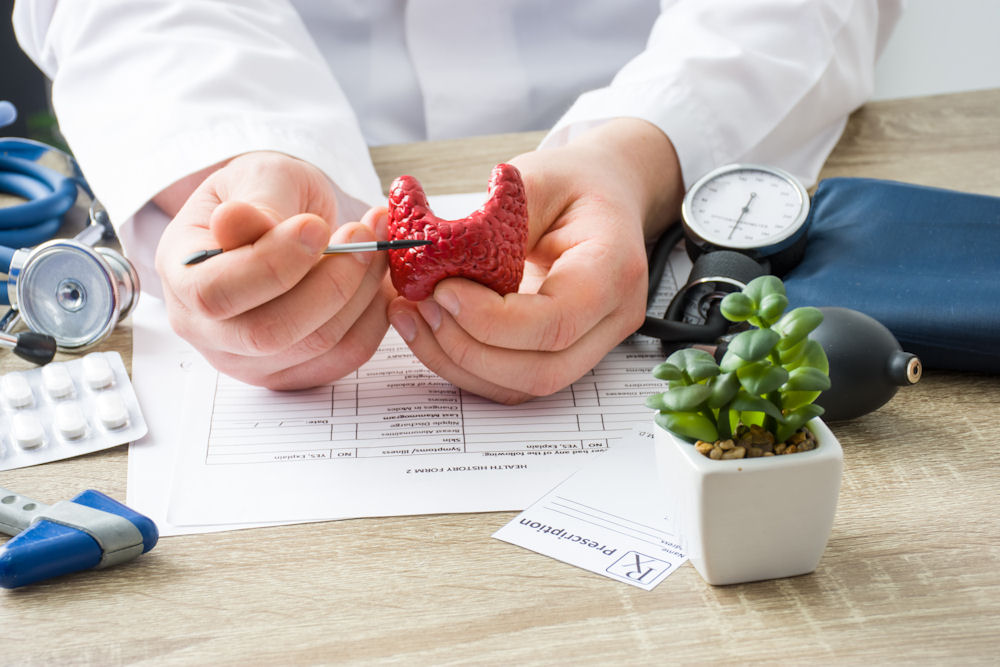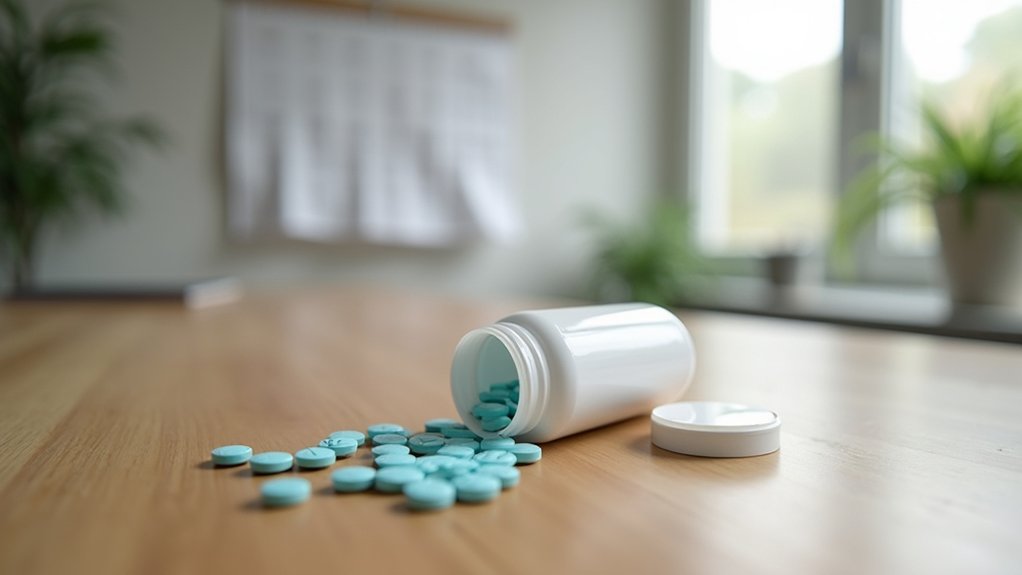How Does Alcohol Affect the Thyroid?
The thyroid is a small gland shaped like a butterfly, found at the front of the neck. It plays a vital role in regulating metabolism, energy production, and overall growth by releasing hormones that control these processes. These hormones—thyroxine (T4) and triiodothyronine (T3)—help the body use energy, stay warm, and maintain proper brain function. The thyroid is controlled by the pituitary gland, which signals it to release hormones based on the body’s needs.
Thyroid disease affects millions globally. An estimated 20 million Americans have some form of thyroid disease, with approximately 60% of those individuals unaware of their condition. Hypothyroidism, or an underactive thyroid, is the most common thyroid disorder, affecting about 4.6% of the U.S. population over the age of 12. On the other hand, hyperthyroidism, or an overactive thyroid, affects around 1.2% of the population. In 2023, thyroid disorders were also linked to increased risk of heart disease, osteoporosis, and mental health issues such as anxiety and depression.
At Immersive Recovery in Encinitas, California, we understand how thyroid health can impact a man’s overall well-being. We collaborate with our clients to provide personalized support and treatments aimed at improving thyroid function and addressing the emotional and physical challenges that often accompany thyroid disorders.
How Do Alcohol and Drugs Affect Thyroid Function?
Addiction to alcohol and drugs can significantly affect thyroid function, often leading to an imbalance in hormone production. Alcohol, in particular, has been shown to suppress the release of thyroid hormones and interfere with the body’s ability to convert T4 into the more active T3. This can result in hypothyroidism, even in individuals who previously had normal thyroid function. People struggling with thyroid issues may, unfortunately, turn to alcohol or drugs as a way to self-medicate, trying to alleviate the fatigue, mood swings, or anxiety caused by thyroid dysfunction.
The link between hypothyroidism and alcohol is also well-established. A dysfunctional thyroid can alter the balance of certain hormones, which in turn can increase cravings for alcohol as the body attempts to self-regulate. Research from 2023 shows that individuals with low thyroid hormone levels are more likely to experience stronger alcohol cravings, further complicating addiction recovery.
The Role of Cortisol on Thyroid Function
Cortisol, often called the “stress hormone,” affects thyroid health as well. Chronic stress causes the body to produce more cortisol, which can inhibit thyroid function, leading to symptoms of fatigue, weight gain, and mood disturbances. This creates a vicious cycle where stress exacerbates thyroid dysfunction, which in turn, increases stress, often leading to unhealthy coping mechanisms like alcohol or drug use.
How the Liver and Thyroid Are Connected to Alcohol Use
The liver is essential in metabolizing alcohol, but it also works alongside the thyroid to regulate hormone levels. Excessive alcohol consumption can impair liver function, reducing the liver’s ability to convert T4 into active T3, further disrupting thyroid balance. This can make it more challenging for the body to process alcohol, creating a dangerous feedback loop.
Changes in Weight, Hormone Levels, and Other Health Problems
Thyroid imbalances caused by alcohol or drug use can lead to significant weight changes. For instance, hypothyroidism often results in weight gain, while hyperthyroidism may cause unintentional weight loss. In addition to weight fluctuations, thyroid dysfunction can contribute to problems such as fatigue, joint pain, hair loss, and depression, making recovery from addiction even more challenging.

Are People with Thyroid Problems More Likely to Develop Addictions?
People with thyroid disorders may be more susceptible to addiction, particularly when it comes to alcohol and drugs. This is due to the way thyroid imbalances can affect the brain and mood. For example, hypothyroidism (underactive thyroid) often leads to symptoms like depression, anxiety, and fatigue, which can cause people to seek out substances like alcohol or drugs to self-medicate. In contrast, hyperthyroidism (overactive thyroid) can cause anxiety, restlessness, and insomnia, making individuals more prone to substance misuse as a way to manage their heightened stress levels.
Hypothyroidism and Alcohol
Hypothyroidism, where the thyroid doesn’t produce enough hormones, is closely linked to alcohol use. People with an underactive thyroid often experience fatigue, depression, and low mood, which can lead them to drink alcohol as a way to cope. Additionally, alcohol can suppress thyroid hormone production further, exacerbating the symptoms of hypothyroidism and creating a cycle of self-medication and worsening health.
Hyperthyroidism and Alcohol
On the other hand, people with hyperthyroidism (an overactive thyroid) may also turn to alcohol as a coping mechanism. Symptoms such as anxiety, irritability, and difficulty sleeping can drive individuals to drink in an attempt to calm their nerves or help them sleep. Alcohol may temporarily relieve these symptoms but can worsen thyroid imbalances in the long run, making it harder to manage the condition.
Other Issues Linked to Alcohol Use and Thyroid Disorders
Chronic alcohol use can worsen thyroid dysfunction by disrupting the liver’s ability to process thyroid hormones. This can lead to a range of health problems, including heart disease, liver damage, and osteoporosis. For those already dealing with thyroid disease, excessive alcohol consumption can make it harder to manage symptoms and maintain a stable hormone balance, increasing the risk of further health complications.
What To Do If You Suspect Drug and Alcohol Abuse is Causing Thyroid Problems
If you suspect that drug or alcohol use is contributing to thyroid issues, the first step is to seek medical advice. A healthcare provider can conduct blood tests to check thyroid hormone levels and assess if alcohol or drug use is affecting thyroid function. If thyroid dysfunction is identified, treating the underlying substance abuse problem becomes essential, as continued alcohol or drug use can worsen thyroid imbalances.
- Consult a Doctor: A healthcare professional will perform tests to evaluate thyroid function, including measuring levels of TSH (Thyroid Stimulating Hormone), T4, and T3.
- Address Substance Use: If alcohol or drug abuse is contributing to thyroid problems, seeking treatment for substance use disorder is crucial. A treatment plan may include therapy services, counseling, or inpatient care for addiction recovery.
- Thyroid Treatment: Once thyroid dysfunction is diagnosed, medication or lifestyle changes may be recommended to restore hormone balance. For hypothyroidism, thyroid hormone replacement therapy is often prescribed, while hyperthyroidism may be treated with antithyroid drugs or other interventions.
- Monitor Progress: Ongoing monitoring of thyroid levels and substance use is necessary to track improvements and adjust treatment as needed. It’s important to address both the addiction and the thyroid condition simultaneously for the best chance at recovery.
Who is More Prone to Developing Hypothyroidism and Alcohol Problems
Certain individuals may be more prone to developing both hypothyroidism and alcohol problems. Women, particularly those over the age of 60, are more likely to develop thyroid dysfunction. Additionally, people with a family history of thyroid disease or those with autoimmune conditions such as Hashimoto’s thyroiditis may be at greater risk. Chronic alcohol use can also increase the likelihood of hypothyroidism due to alcohol’s direct impact on thyroid hormone production and liver function.

Treatment for Hypothyroidism and Alcohol Abuse
Treating both hypothyroidism and alcohol abuse requires a comprehensive approach. It’s important to address both conditions at the same time for the best chance of recovery.
- Medication for Hypothyroidism: Levothyroxine is the most common medication used to treat hypothyroidism. It helps restore normal thyroid hormone levels and alleviate symptoms such as fatigue, weight gain, and depression.
- Addiction Treatment: Treatment for alcohol use disorder may include counseling, support groups (like Alcoholics Anonymous), and behavioral therapy. In more severe cases, inpatient rehabilitation or medically assisted detox may be necessary to manage withdrawal symptoms and help individuals recover safely.
- Lifestyle Changes: A healthy diet, regular exercise, and stress management techniques can help support thyroid health and reduce cravings for alcohol. Reducing alcohol consumption can improve thyroid function and overall well-being.
- Ongoing Support: Long-term therapy and monitoring are essential for managing both thyroid health and alcohol use. Regular follow-up visits with healthcare professionals help ensure that both conditions are being addressed effectively.

Recover From Alcoholism at Immersive Recovery
At Immersive Recovery, we understand that addiction and thyroid dysfunction are often interconnected, and we offer a holistic approach to recovery. Our team works closely with each client to create a personalized treatment plan that addresses both alcohol use disorder and any thyroid-related issues.
Through evidence-based therapies, individualized care, and a supportive environment, we help clients regain control of their health and their lives. Our goal is not just to treat addiction, but to support long-term well-being by restoring thyroid function and overall health, empowering individuals to live fulfilling lives free from substance abuse.
If you’re struggling with both thyroid issues and alcohol use, you don’t have to face it alone. Let us help guide you toward healing. Contact us today and take the first step towards a healthier, balanced future.





